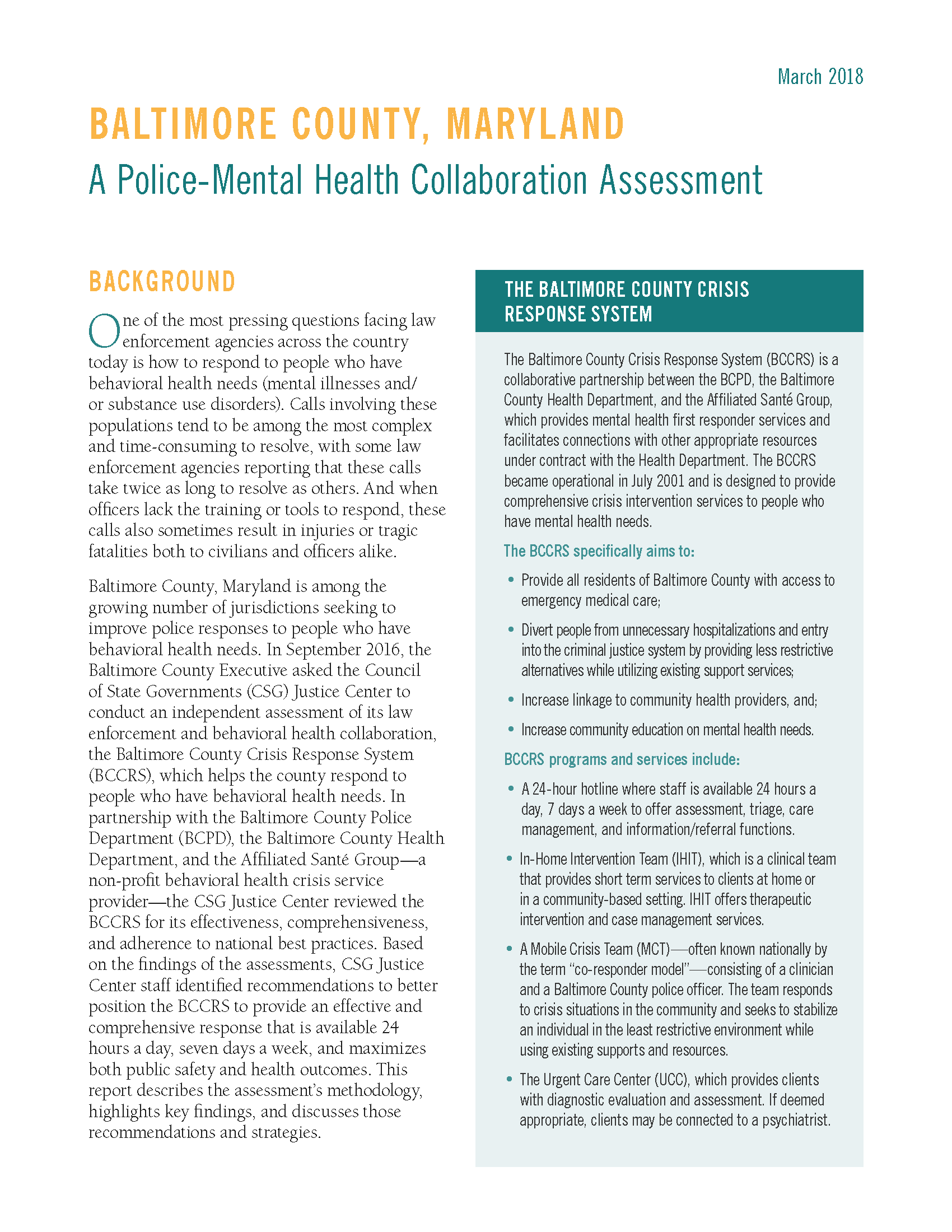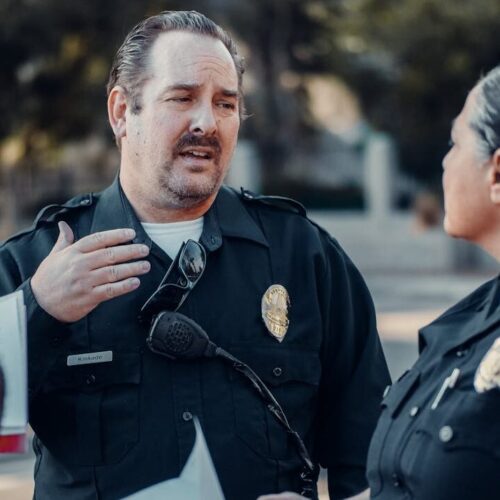Baltimore County, Maryland: A Police-Mental Health Collaboration Assessment
In September 2016, Baltimore County, Maryland’s county executive asked the CSG Justice Center to conduct an independent assessment of its law enforcement and behavioral health collaboration, the Baltimore County Crisis Response System (BCCRS), which helps the county respond to people who have behavioral health needs. This report describes the assessment’s methodology, highlights key findings, and discusses those recommendations and strategies.
In partnership with the Baltimore County Police Department (BCPD), the Baltimore County Health Department, and the Affiliated Santé Group—a non-profit behavioral health crisis service provider—the CSG Justice Center reviewed the BCCRS for its effectiveness, comprehensiveness, and adherence to national best practices. Based on the findings of the assessments, CSG Justice Center staff identified recommendations to better position the BCCRS to provide an effective and comprehensive response that is available 24 hours a day, seven days a week, and maximizes both public safety and health outcomes.
The sharp rise in school shootings over the past 25 years has led school officials across the U.S.…
Read MoreA three-digit crisis line, 988, launched two years ago to supplement—not necessarily replace—911. Calling 988 simplifies access to…
Read MoreIt would hardly be controversial to expect an ambulance to arrive if someone called 911 for a physical…
Read More Taking the HEAT Out of Campus Crises: A Proactive Approach to College Safety
Taking the HEAT Out of Campus Crises: A Proactive Approach to College Safety
The sharp rise in school shootings over the past 25 years has led school officials across the U.S. to take a closer look at ways to keep students safe. For Chaffey College in Rancho Cucamonga, California, a tragic incident at a nearby university hit close to home and spurred campus leaders to revisit their own school’s threat assessments and crisis responses.
Read More From 911 to 988: Salt Lake City’s Innovative Dispatch Diversion Program Gives More Crisis Options
From 911 to 988: Salt Lake City’s Innovative Dispatch Diversion Program Gives More Crisis Options
A three-digit crisis line, 988, launched two years ago to supplement—not necessarily replace—911. Calling 988 simplifies access to services when people are seeking help for themselves or loved ones with suicidal thoughts, behavioral health concerns, or substance use-related crises.
Read More Matching Care to Need: 5 Facts on How to Improve Behavioral Health Crisis Response
Matching Care to Need: 5 Facts on How to Improve Behavioral Health Crisis Response
It would hardly be controversial to expect an ambulance to arrive if someone called 911 for a physical health emergency. And yet, for years, the default responders for a behavioral health emergency have been law enforcement officers, not behavioral health professionals.
Read More












